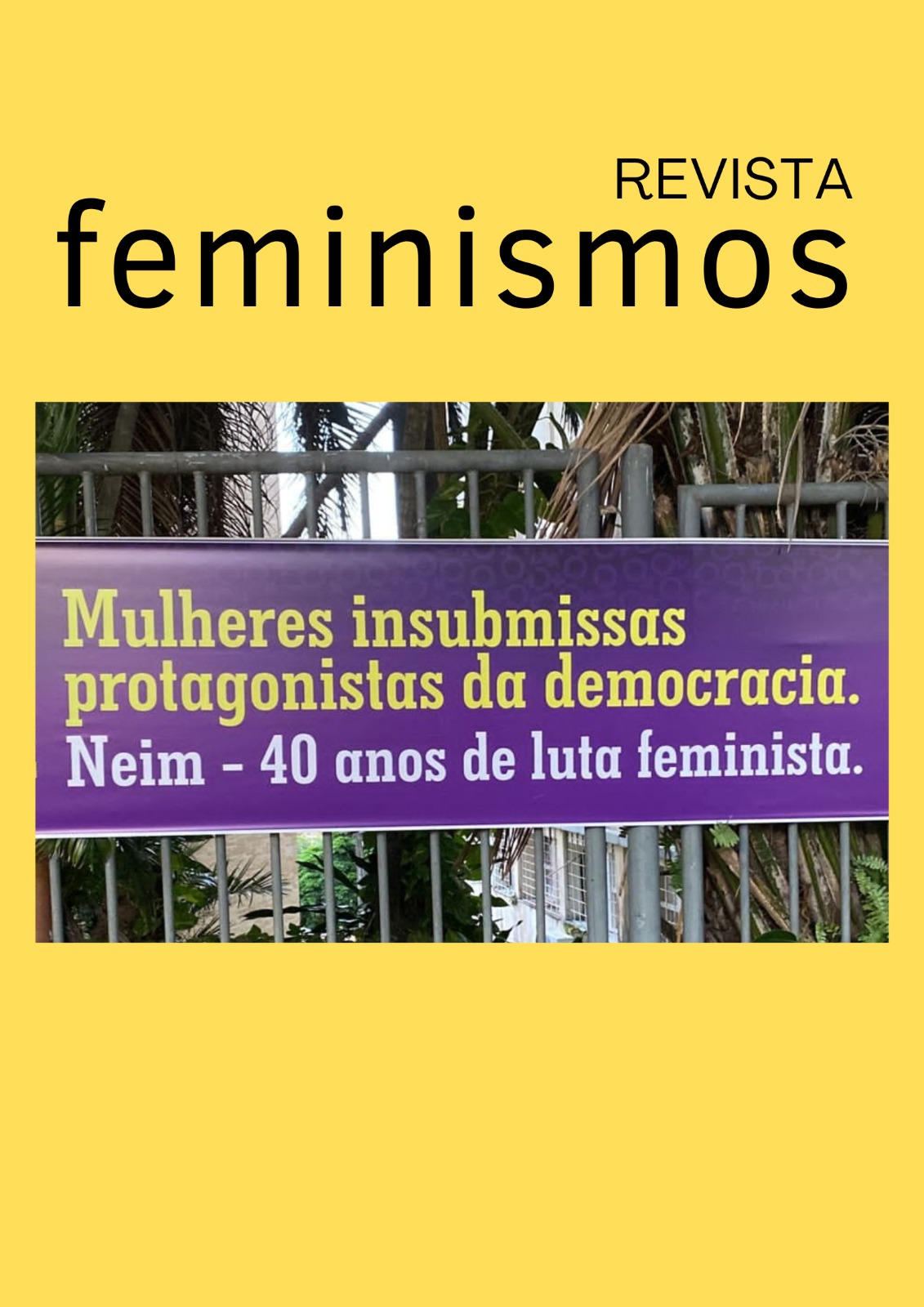POR UMA NOVA SENSIBILIDADE FEMINISTA: A MULHER COMO OBRA DE ARTE A PARTIR DE GUIDA (2014)
DOI:
https://doi.org/10.9771/rf.v11i2.57214Keywords:
new sensitivity, feminism, cinema, filmic analysisAbstract
This essay proposes feminist struggle to incorporate a aesthetic and sensitive outlook to its broader social demands. In the scenario of capitalist society, alienating work and patriarchy, the work reflects on the processes of women subordination from the aesthetic experience with the short film Guida (2014), from Rosana Urbes. The short film and its homonymous protagonist rebel against the status quo as transgressing devices, offering an emancipatory perspective for the construction of a new female sensitivity. In structural terms, we depart from the theoretical dialogue with the ideas of critical and feminist intellectuals to then proceed to a filmic analysis of the short film, centralizing its sound and image elements. Finally, the work discusses the woman as a work of art, that one that imaginatively contests the state of affairs, articulating art, politics, happiness, justice and sensitivity.
Downloads
References
ARRUZZA, Cinzia; BHATTACHARYA, Tithi; FRASER, Nancy. Feminismo para os 99%: um manifesto. São Paulo: Boitempo, 2019.
BRISELANCE, Marie-France; Morin, Jean-Claude. Gramática do cinema. Lisboa: Edições Texto e Grafia, 2011.
ENTEL, Alicia. Dialética de lo Sensible: Imágenes entre Leonardo y Walter Benjamin. Buenos Aires: Aidos editores, 2008.
FRASER, Nancy. A Justiça Social na Globalização: redistribuição, reconhecimento e participação. Revista Crítica de Ciências Sociais, Coimbra, n. 63, p. 7-20, out. 2002.
FRASER, Nancy. Da redistribuição ao reconhecimento? Dilemas da justiça numa era “pós-socialista”. Cadernos de Campo, São Paulo, v. 15, n. 14-15, p. 231-239, 2006.
FRASER, Nancy; RAHEL, Jaeggi. Capitalismo em debate: uma conversa na teoria crítica. São Paulo: Boitempo, 2020.
GARDIES, René. Compreender o cinema e as imagens. Tradução Pedro Elói Duarte, Lisboa:
Texto e Gráfica, 2006.
GUIDA. Direção: Rosana Urbes. Produção: Belisa Proença. Brasil: Planta Filmes, 2014 (11 min.). Disponível em: https://www.youtube.com/watch?v=c5xB5b3dQK8. Acesso em: 15 de out. de 2023.
MARCUSE, Herbert. A ideologia da sociedade industrial: o homem unidimensional. 4 ed. Tradução de Giasone Rebuá. Rio de Janeiro: Zahar Editores, 1973.
MARCUSE, Herbert. Um ensaio para a libertação. Lisboa: Livraria Bertrand, 1969.
MARCUSE, Herbert. Arte como forma de realidade. Revista do Programa de Pós-graduação em Filosofia da UFOP, n. 31, p. 206-216, jan-dez 2022.
SÉVE, Mário. O choro no estilo sambado: padrões rítmicos e fraseado musical. DEBATES - Cadernos do Programa de Pós-Graduação em Música da Unirio, n. 17, p. 219-249, nov. 2016.
VANOYE, Francis; GOLIOT-LÉTÉ, Anne. Ensaio sobre a análise fílmica. Campinas, SP: Papirus, 1994.
Downloads
Published
How to Cite
Issue
Section
License
Autoras/es que publicam nesta revista concordam com os seguintes termos:
1. Autoras/es mantém os direitos autorais e concedem à revista o direito de primeira publicação, com o trabalho simultaneamente licenciado sob a Creative Commons Attribution License que permitindo o compartilhamento do trabalho com reconhecimento da autoria do trabalho e publicação inicial nesta revista.
2. Autoras/es têm autorização para assumir contratos adicionais separadamente, para distribuição não-exclusiva da versão do trabalho publicada nesta revista (ex.: em repositório institucional ou como capítulo de livro), com reconhecimento de autoria e publicação inicial nesta revista.
3. Autoras/es têm permissão e são estimuladas/os a publicar e distribuir seu trabalho online (ex.: em repositórios institucionais ou na sua página pessoal) a qualquer ponto antes ou durante o processo editorial, já que isso pode gerar alterações produtivas, bem como aumentar o impacto e a citação do trabalho publicado.

